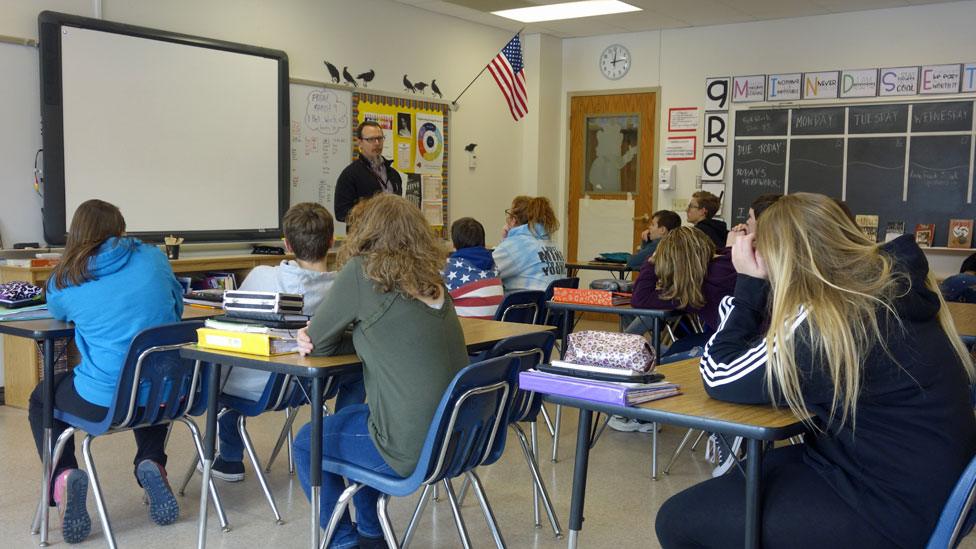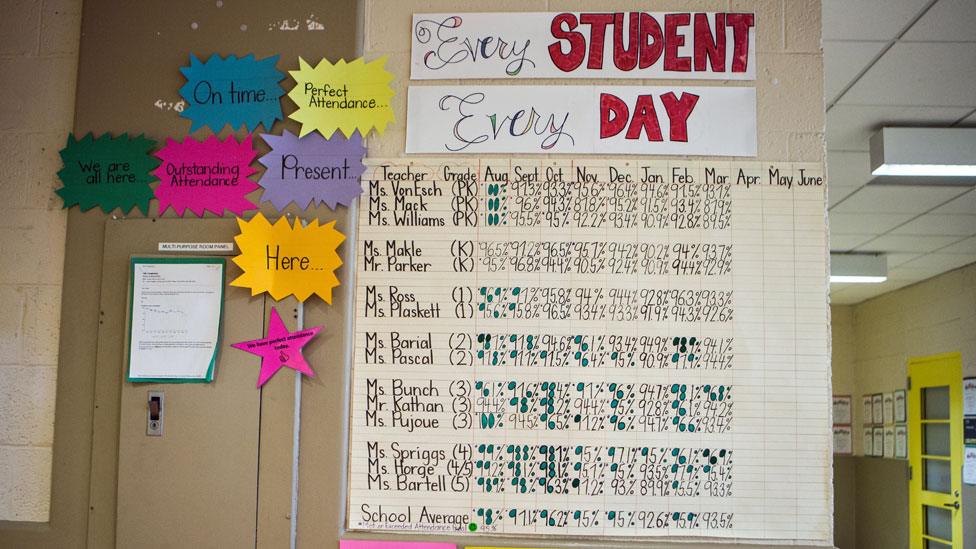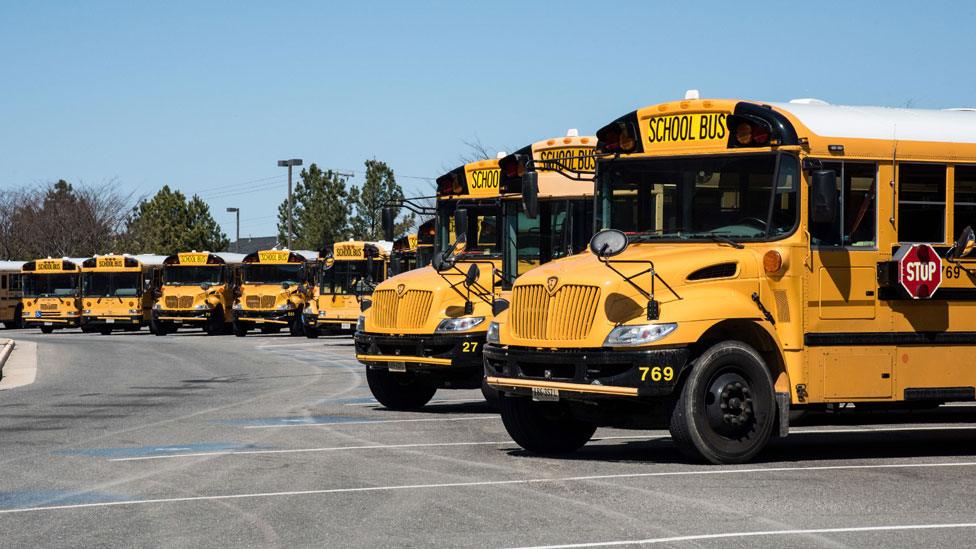'Rewards don't improve school attendance'
- Published

It's the back-to-school season - and many young people may be feeling reluctant about returning for the start of another academic year.
And in many schools there are deliberate attempts to boost attendance by giving rewards, school prizes and commendations to those who have the best records for not missing any lessons.
But do such prizes really change behaviour?
According to a large-scale study of secondary school students in California in the US, awards for good school attendance seem to make no significant difference - and in some circumstances, could make absenteeism worse.
The study, published by the Harvard Kennedy School of Government, external in Massachusetts, examined the effect of rewards schemes on more than 15,000 students in 14 school districts in California.
'Demotivating'
Researchers, including Carly Robinson, found that if prizes were promised in advance, it made no difference to whether pupils attended.
If the rewards were retrospective, in recognition of high levels of attendance, it seemed to have a negative impact on the winners' future school attendance.

Families are getting ready for going back to school for the new term
This was completely opposite to what was expected by teachers and education officials. The study found only 2% of staff expected the award schemes not to have a positive impact.
It's also official policy in California to support such reward schemes, so why is there such a big gap between the good intentions and the outcome?
The researchers, from Harvard University, Stanford University and the University of California, Los Angeles, said that such awards seemed to send "unintended messages" which could have a "demotivating" effect.
Students winning awards could get the "inadvertent signal" that their attendance had been much higher than expected - and so they could take a more relaxed approach in future.
'Unintended message'
It could tell youngsters that their behaviour had been exceptional, rather than what was required. In response, they might feel they could try less hard next time.

Schools have experimented with ways to recognise good attendance
"The award may have resulted in recipients feeling allowed to miss a future day of school," said the study, which included students from a representative range of incomes, ethnicities, inner-city, suburban, rural and English and Spanish-speaking families.
There is also strong social pressure among teenagers to conform and such prizes could make unusually high attendance seem to be outside the norm for their peer group.
Those with high attendance levels might get the message that the school sees "normal" attendance as being much lower, making them feel uncomfortably different.
As a result they might adapt their behaviour to miss a few more days.
'Employee of the month'
The study focused on the most widely used type of rewards, based on public praise, such as giving a certificate of merit, rather than one-off competitions or cash prizes.
The researchers say these public commendations are similar to the "Employee of the Month" schemes widely used by employers - and the school study provides an insight into their impact.

School officials assumed that awards would have a positive impact on attendance
Workplace absenteeism costs the US economy more than $200bn (£155bn) per year, says the study, and there might be an assumption that awards for attendance might reduce lost days.
But the study says there can be conflicting evidence.
It points to previous research from the University of California, Riverside, which examined an employers' scheme which gave recognition to workers with good attendance and punctuality, and which entitled winners to take part in a prize draw for gift vouchers.
Risk of 'backfiring'
This had superficially appeared to be making improvements. But the study found that some staff, rather than really improving on attendance, were focusing on gaming the system to be eligible for the chance of winning prizes.
But the biggest problem was the negative impact on staff who had previously been self-motivated, conscientious, hard workers.

Rewards are used in the workplace - but researchers say there is surprisingly little evidence of their impact
They thought the system of praise for some individuals was unfair and if they were not part of the prize draw they were demotivated - and their punctuality and attendance declined.
The overall conclusion was that productivity had been lowered rather than increased.
There are many different ways of using incentives to influence behaviour - with some industries offering big cash bonuses attached to performance.
But the academics say that despite the prevalence of rewards there is surprisingly little examination of the outcomes.
In the case of attendance rewards in Californian schools, it says that even among the staff using them "almost none" had expected them to have a negative effect.
"These findings have implications for when and how awards should be used to motivate desirable behaviours - and when they may backfire," the study concludes.

More from Global education
The editor of Global education is sean.coughlan@bbc.co.uk